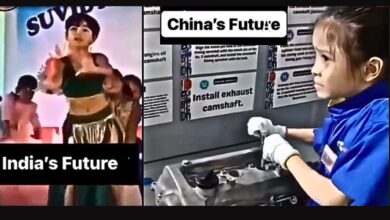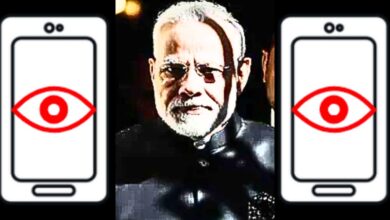Breaking The Multinational Monopoly: Karsanbhai Patel’s Journey From Laboratory To Market Leadership

Few entrepreneurs have changed the face of an industry the way Karsanbhai Patel transformed the Indian detergent market.
His journey, from selling detergent on a bicycle to building Nirma into an 11,000 CR+ brand, is a testament to perseverance, innovation, and an unwavering belief in affordability for the masses. What makes his story even more remarkable? He took on Hindustan Unilever (HUL) head-on and emerged victorious.
Breaking a Monopoly: The Birth of Nirma
In 1969, the Indian detergent market was completely dominated by Hindustan Lever’s Surf. The product, priced at ₹15 per pack, was out of reach for the average Indian household. As a result, most families had no option but to use bar soaps, which were harsh on both clothes and skin.
Enter Karsanbhai Patel, a 24-year-old chemist from Gujarat. Working in his backyard laboratory, he tirelessly experimented to create a phosphate-free detergent powder that would be both effective and affordable. After multiple trials and setbacks, he finally developed a yellow-colored detergent powder that he priced at just ₹3 per pack—one-fifth the price of Surf.
He named his invention after his beloved daughter, Nirupama, and with that, Nirma was born.
The Bold Sales Strategy: Selling Nirma Door-to-Door
Unlike large corporations that relied on traditional distribution networks, Karsanbhai Patel took a direct approach. Armed with nothing but his bicycle, he went door-to-door in Ahmedabad, selling Nirma with a money-back guarantee. This strategy helped him achieve two critical goals:
- Built consumer trust—The refund policy reassured people of the product’s quality.
- Created personal connections—People were more willing to try a detergent sold by a friendly, hardworking man than a corporate giant’s expensive alternative.

Within a few months, word-of-mouth began working wonders. Families started switching to Nirma, and sales picked up momentum in Gujarat. However, Karsanbhai Patel knew that if Nirma had to challenge Surf, it had to expand nationwide.
Taking on HUL: The Advertising Genius
Scaling Nirma across India was risky. The challenge? Retailers were hesitant—they didn’t want to stock a new, unknown brand.
Karsanbhai Patel had two options:
- Convince retailers to stock Nirma on credit (risky, as unsold stock could bankrupt him).
- Build a strong brand that forced retailers to demand Nirma.
He chose the second option and made a game-changing move—investing his hard-earned money into television advertising in 1980. And just like that, India heard a jingle that would become legendary:
“Washing Powder Nirma, Washing Powder Nirma!”
This catchy advertisement, targeted at housewives, made Nirma a household name. It connected emotionally with mothers who wanted affordability without compromising on quality. Within months, sales soared across India, eating into Surf’s once-unshakable dominance.
HUL’s Counterattack: Operation STING
By 1985, Nirma had captured 20% of the detergent market, forcing HUL to act. The FMCG giant launched Operation STING (Strategy to Inhibit Nirma’s Growth) and introduced Wheel—a detergent priced at par with Nirma.
But Karsanbhai Patel was not fazed. He understood something that HUL’s top executives didn’t—rural consumers were looking for VALUE, not just a brand name.
- HUL relied on aggressive marketing; Nirma relied on trust.
- HUL assumed price alone would shift consumer preferences; Karsanbhai Patel knew quality mattered too.
- HUL played catch-up; Nirma was already dominating small towns and villages.
Despite HUL’s best efforts, Nirma grew stronger—by 1990, it controlled 60% of the detergent market. Surf was no longer India’s go-to detergent.
The Masterstroke: Creating FOMO in the Market
To further establish Nirma’s dominance, Karsanbhai Patel played a brilliant psychological game—he temporarily pulled Nirma from distributors, creating an artificial shortage. Within weeks, consumers started demanding Nirma aggressively, leading retailers to plead for increased supply.
- Nirma’s return to stores became an “event”.
- Consumers rushed to buy, fearing it might disappear again.
- This move solidified Nirma’s brand loyalty even further.
This was the final nail in the coffin—HUL had lost the detergent war to a farmer’s son from Gujarat.
The Legacy: Building a Multi-Billion-Dollar Brand
Even a decade later, Nirma remained India’s highest-selling detergent. But Karsanbhai Patel wasn’t done yet—he expanded into soaps, beauty care, and education, turning Nirma into a diversified business empire.
- 2023 Revenue: Over ₹11,000 crore
- Products: Detergents, soaps, cosmetics, cement, and education
- Nirma University: One of Gujarat’s top private institutions
- Market Position: Continues to compete with global FMCG giants

The Entrepreneur Who Changed How India Washes Its Clothes
Karsanbhai Patel’s story is more than just a business success—it’s a revolution. He showed that biggest corporations can be challenged, that affordable products can dominate the market, and that innovation isn’t about technology—it’s about understanding people.
His journey teaches us key lessons:
- Identify real consumer needs – He saw that middle-class Indians needed a budget-friendly detergent.
- Start small but dream big – From a backyard experiment to a ₹11,000 CR empire.
- Marketing matters – The Washing Powder Nirma jingle still echoes in Indian homes.
- Compete with strategy, not fear – He never lowered his standards, even when HUL fought back aggressively.
- Create a brand, not just a product – Nirma wasn’t just a detergent; it became a movement.
Final Thoughts: An Icon of Indian Entrepreneurship
From cycling door-to-door to competing with a multinational giant, Karsanbhai Patel’s story is a beacon of hope for aspiring entrepreneurs. He proved that you don’t need millions in investment to build a billion-dollar brand—you need vision, hard work, and a deep understanding of your consumers.
A farmer’s son from Gujarat, now worth $4 billion, a Padma Shri awardee, and a Forbes-listed billionaire, Karsanbhai Patel is the man who changed how India washes its clothes.
And it all started with a ₹3 packet of detergent and a bicycle.





